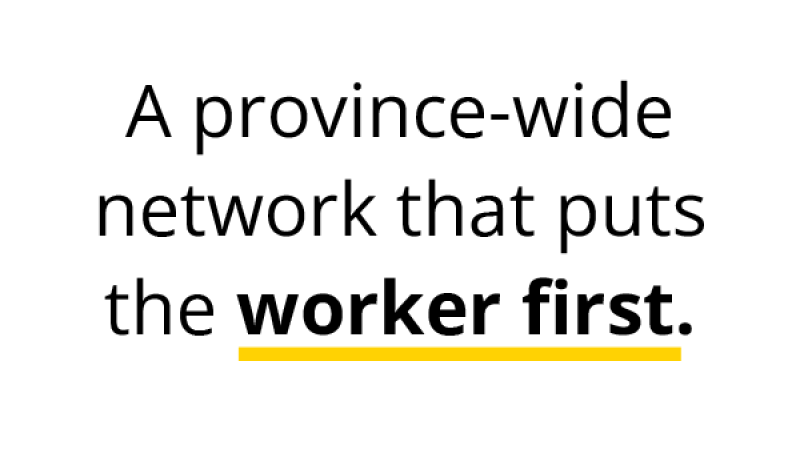Submitting Forms, Invoices, and Reports
Service providers are required to submit forms, reports, and invoices for the services they provide to workers injured at work.
Service providers are required to submit forms, reports, and invoices for the services they provide to workers injured at work.
The Centralized Surgical Services Program (CSSP) offers faster access to select non-emergency surgical and related services by using available capacity in the public health-care system.
The 2024 government review of the workers' compensation system made something crystal clear: to prevent more injuries in the workplace, we need to change how we work. That’s why in partnership with the Department of Labour, Skills and Immigration (LSI), we're launching Safer Workplaces Together, an action plan that will bring WCB, LSI, employers and safety partners to the table with a focused mission on injury prevention. With annual check-ins, this collaboration will be guided by solid data sharing, ambitious targets, transparent reporting and bold action on key priorities.
One team, with a clear plan to help prevent more people from getting injured at work.
A strategic framework outlining Nova Scotia’s collaborative approach to workplace injury prevention, focusing on musculoskeletal injuries, psychological safety, and supervisor support to create safer workplaces together.
This document invites partners to join us in building a strong and purpose-driven network dedicated to creating meaningful impact in injury prevention.
An updated December 2024 reference guide from the Workers’ Compensation Board (Nova Scotia) designed to provide comprehensive guidance on policy procedures and best practices.
This infographic explains how WCR, as a program, helps us establish a new way forward by putting workers first.
Today, people who have a physical or psychological injury at work get care from over 500 different health providers – physiotherapists, chiropractors, psychologists, occupational therapists, and others.
